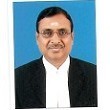Will
 Sanjeev Mittal
(Querist) 10 December 2010
This query is : Resolved
Sanjeev Mittal
(Querist) 10 December 2010
This query is : Resolved
Our Client has two son, one is died in road accident & his wife is divorcee ( Divorce Case is pending) Now our client want to make a will in favour of his alive son.
Pls. advise us that above will can revocaked/ challanged by divorcee wife or her successer.
 R.Ramachandran
(Expert) 10 December 2010
R.Ramachandran
(Expert) 10 December 2010
If the property is the self-earned property (not ancestral) of your client, he can give will to anybody and nobody can object to /challenge it.
 Arvind Singh Chauhan
(Expert) 10 December 2010
Arvind Singh Chauhan
(Expert) 10 December 2010
If it is self acquired property your client may make will there is no hurdle.
If the property is ancestral wife can object and challenge it.
If the property is ancestral he should wait up to the decision of divorce.
 R.Ramachandran
(Expert) 10 December 2010
R.Ramachandran
(Expert) 10 December 2010
Dear Mr. Arvind,
We have seen in this LCI site that once the husband dies, the question of divorce does not arise. The wife will be a widow of the deceased husband. If it is ancestral, once a person having coparcenary interests dies, there will be deemed partition and the share which he would have been entitled had been alive would to him (i.e. his legal heirs). In this case the legal heir of the deceased son is his wife (widow).
 Kirti Kar Tripathi
(Expert) 10 December 2010
Kirti Kar Tripathi
(Expert) 10 December 2010
I AGREE WITH MR. RAMCHANDDRAN. SINCE DIVORCE HAS NOT TAKEN PLACE DURING THE LIFE TIME OF DECEASED THEREFORE THE WIFE REMAINS WIFE OF DECEASED PERSON. HOWEVER, IN CASE SHE REMARRY, SHE WILL LOOSE HER RIGHT IN THE ANCESTRAL PROPERTY.
 s.subramanian
(Expert) 10 December 2010
s.subramanian
(Expert) 10 December 2010
I agree with Mr.Ramachandran.
 G. ARAVINTHAN
(Expert) 10 December 2010
G. ARAVINTHAN
(Expert) 10 December 2010
There will not be any bar to bequeath self acquired property to son through a will.
In so far as ancestral property is concerned, can write only about his share and not the whole
 R.Ramachandran
(Expert) 10 December 2010
R.Ramachandran
(Expert) 10 December 2010
Dear Mr. Kirti,
After commencement of the Hindu Women's Rights to Property Act, 1937, where the husband dies as a coparcener, his widow would take the property of her husband. She would become an absolute owner of such property under Section 14 with a fresh stock of descent under Sections 15 and 16 of the HSA Act. Her remarriage would not affect this position in any way.
 Arvind Singh Chauhan
(Expert) 10 December 2010
Arvind Singh Chauhan
(Expert) 10 December 2010
Respected seniors sorry to interrupt here. There is a confusion, as the query states- "& his wife is divorcee" whose wife? son's wife or wife of Mr. Mittals client? If she is son's wife why the divorce is pending ?. If she is client's wife, client is alive yet. according to Mr. Mittal he said "Now our client want to make a will in favour of his alive son."
Pardon me also if I am wrong, and do correct me please.
 Kirti Kar Tripathi
(Expert) 10 December 2010
Kirti Kar Tripathi
(Expert) 10 December 2010
Dear Mr. Ramachandran
This position will arise only when the ancestral property is partitioned during the life time of deceased son.
 Sanjeev Mittal
(Querist) 11 December 2010
Sanjeev Mittal
(Querist) 11 December 2010
Respected Seniors,
want to clear more:-
1. divorcee wife of deceased son is living seperatly from the life time of decesed son.
2. Case has been filled by wife of decease son u/s 498 A & one for divorce is pending.
3. at present she is living with some one we dont have any proof of re marraige.
4. She has already taken back all every thing which exp. incurred at the time of marriage including wedding material.
5. Is she entitled to claim the benefits as nominee of deceased son in the property which gained by deceasd son.
Anticipatory thanks for advice.
 R.Ramachandran
(Expert) 11 December 2010
R.Ramachandran
(Expert) 11 December 2010
Dear Mr. Kirti,
If the partition takes place during the life time of the husband, then the wife will not even come into the picture
(as she is not the coparcenar). The moment any of the co-parcenar dies, there will be automatic partition, as per HSA 1956. The interest of the deceased co-parcenar will devolve either by testamentary disposition, or by way of inheritance. In this case, since the widow does not appear to have any children, the ancestral property falling to the share of the deceased male will go by way of inheritance (since the deceased does not appear to have left any WILL) to the widow. The widow will take the property as her absolute private property. Her remarriage will not affect this position.
 R.Ramachandran
(Expert) 11 December 2010
R.Ramachandran
(Expert) 11 December 2010
Dear Mr. Sanjeev,
Unless the divorce had been granted prior to the death of the husband, the wife will inherit the ancestral property share of her husband. Other issues points 1 to 5 have no bearing for this issue.
 Sri Vijayan.A
(Expert) 11 December 2010
Sri Vijayan.A
(Expert) 11 December 2010
Mr.Mittal,
Is the property, self acquired one of father?
If so, he can make and it cant be challenged.
However, I advise to make a settlement deed executed and registered by the father in favour of the alive son.
This will eliminate problem later.
 Kirti Kar Tripathi
(Expert) 12 December 2010
Kirti Kar Tripathi
(Expert) 12 December 2010
Dear Mr. Ramchandran
if the property is ancestral it will not pass to the other coparcenars until father dies. If the son died during the life time of father and his wife get remarriage before his her father in law dies, the rights of deceased son will pass to other coparcenars not to his wife.
 R.Ramachandran
(Expert) 12 December 2010
R.Ramachandran
(Expert) 12 December 2010
Dear Mr. Kirti,
I am afraid you are not correct.
Explanation 1 under Proviso to Section 6 of HSA, 1956 very clearly says that for the purpose of this Section, the interest of a Hindu Mitakshara coparcener shall be deemed to be the share in the property that would have been allotted to him if a partition of the property had taken place immediately before his death, irrespective of whether he was entitled to claim partition or not.
Thus, the moment a coparcenar dies, there will be deemed partition, and the share of the deceased coparcenar shall go either according to his testamentary disposition or by way of inheritance.
(It will not go by survivorship as indicated by you above).
 Kirti Kar Tripathi
(Expert) 12 December 2010
Kirti Kar Tripathi
(Expert) 12 December 2010
provisions of Hindu Succession Act shall apply.
 R.Ramachandran
(Expert) 12 December 2010
R.Ramachandran
(Expert) 12 December 2010
Dear Mr. Kirti,
Thanks. If HSA applies, then the widow would 'inherit' the share of the deceased person in the ancestral property. Once she inherits such a property, it becomes her absolute property, and her subsequent remarriage would have no effect.
 Kirti Kar Tripathi
(Expert) 12 December 2010
Kirti Kar Tripathi
(Expert) 12 December 2010
but Mr. Ramchandran in this query, the property in the mane of father. it han not been devolved in his son till his death
 R.Ramachandran
(Expert) 12 December 2010
R.Ramachandran
(Expert) 12 December 2010
Dear Mr. Kirti,
You agree that it is an ancestral property.
The property is currently in the name of the father.
The sons can seek partition of the ancestral property at any time. So long as such a partition had not been demanded the property would remain undivided ancestral property.
But whether or not any son/coparcenar demands a partition, the moment one of the coparcenar dies, Explanation to Proviso of Section 6 HSA says that there would be deemed to be a partition and the share that would go to the deceased son had been alive would go by testamentary disposition or inheritance.
So even if the property is in the name of the father, still the share of the deceased son will go to his widow.
 Kirti Kar Tripathi
(Expert) 15 December 2010
Kirti Kar Tripathi
(Expert) 15 December 2010
i am not agree with the fact that the property is ancestral. i say in case, property is ancestral. from the query, it is apparent the the father is absolute owner of property. it will become ancestral only after his death if he dies without will. thus in case, the son dies in the life time of father and his wife gets marriage during father's life time, she will loose her right as she will be no more member of family.
 R.Ramachandran
(Expert) 15 December 2010
R.Ramachandran
(Expert) 15 December 2010
Dear Mr. Kirti,
The moment a son is born, the property in the hands of the father which he inherited from his forefathers would become 'ancestral'/coparcenary.
For this purpose the father need not die.
In any way, I respect your views.
Let us agree to disagree.
Regards.
 Sanjeev Mittal
(Querist) 21 December 2010
Sanjeev Mittal
(Querist) 21 December 2010
Dear All,
Thanks for your valuable time.
would like to clear that all the property gained by client's personal earning. nothing is recived as ancestral.
Request for guidence.
Thanks Again.
 R.Ramachandran
(Expert) 10 December 2010
R.Ramachandran
(Expert) 10 December 2010
 R.Ramachandran
(Expert) 10 December 2010
R.Ramachandran
(Expert) 10 December 2010
 R.Ramachandran
(Expert) 10 December 2010
R.Ramachandran
(Expert) 10 December 2010
 R.Ramachandran
(Expert) 11 December 2010
R.Ramachandran
(Expert) 11 December 2010
 R.Ramachandran
(Expert) 11 December 2010
R.Ramachandran
(Expert) 11 December 2010
 R.Ramachandran
(Expert) 12 December 2010
R.Ramachandran
(Expert) 12 December 2010
 R.Ramachandran
(Expert) 12 December 2010
R.Ramachandran
(Expert) 12 December 2010
 R.Ramachandran
(Expert) 12 December 2010
R.Ramachandran
(Expert) 12 December 2010
 R.Ramachandran
(Expert) 15 December 2010
R.Ramachandran
(Expert) 15 December 2010
